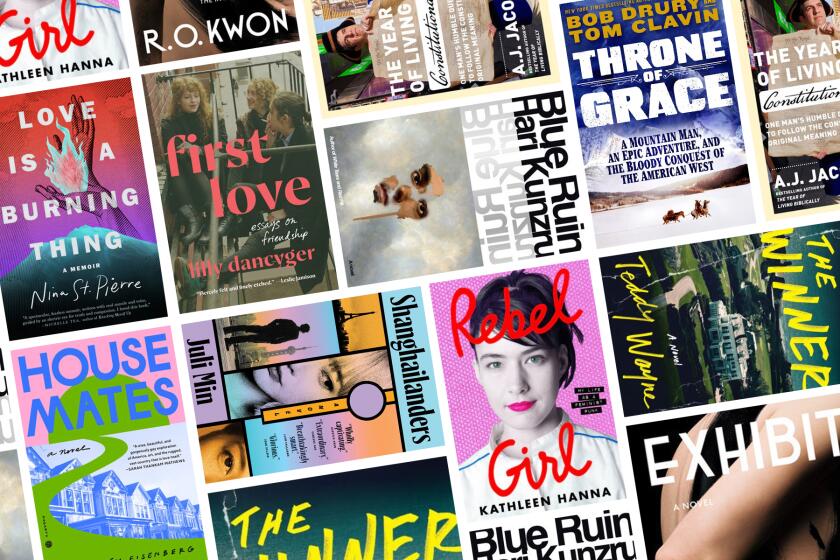Distracted? Don’t blame Steve Jobs
I am making a chicken for dinner. But it is taking a long time to roast, and as I open the door to poke at it, I wonder if something is wrong.
Also, we need oven cleaner, I tell my husband, who is sitting at the table typing on one of his many gadget things. Laundry detergent too, he says, not looking up. As I look for the grocery list, my husband’s iPhone rings. He listens to the news and then repeats it, in disbelief: “Steve Jobs is dead?”
I sit down and instinctively reach for the closest MacBook Air as my husband grabs his iPad, and we start looking for confirmation. We are very fast typists, the two of us, but we are barely halfway through “s-t-e-v-e-j-o-” when our 14-year-old daughter skitters into the kitchen and says that all her friends are changing their Facebook statuses to “RIP Steve Jobs,” and do we think school will be canceled tomorrow, and something smells good. She has to finish her math homework, she concludes as she heads back to her bedroom, so we should call her when dinner is ready.
Which could take awhile. Because, I suddenly realize, the oven door is still open.
I don’t know about you, but at my house we definitely “think different” these days, thanks to Steve Jobs. I look at all the iPods and iPads and iPhones and iMacs that are strewn around the place, vying constantly for attention, and I frankly think it’s a wonder that a chicken doesn’t burn to a crisp every night while I am very, very far away, living in a virtual world filled with data clouds and Word Solitaire and every episode of “Grey’s Anatomy” on demand.
What did we do, I wonder, in the days before my three daughters could sit in a row on the sofa and text each other from their respective laptops? How did we survive before there was a nearly limitless library of songs to flip through as quickly as we could think of a title or a snatch of half-forgotten lyric? How did we stay in touch before it was possible to shoot video of our oldest daughter during college graduation — and send her grandparents the clip before she stepped offstage with her diploma?
Supposedly, we read books. Long, difficult novels featuring so many characters with the same surname that their relationships to each other had to be diagramed in the forwards. We rode bikes and raked leaves. And we played tag football as crazily as any Kennedy, enjoying the fresh air instead of rotting our minds and souls in front of blinking monitors. We had longer attention spans too and could concentrate better — and we weighed less, before that Jobs fellow introduced his fiendishly addictive gadgets to the world.
Or at least that’s the myth that’s being perpetrated by all the Mr. Crankypants who’ve been commenting up a storm (online!) in the days since Jobs’ death. “It’s always sad to see someone die ... but i for one fail to see how we are ‘better off,’” wrote one commenter on a motorcycle enthusiasts’ site called Roadstarclinic.com. “Why are the parks empty? why are kids obese? ... god forbid you get hit by someone texting while driving, then we will see how great that cell phone is.”
He (or she, it’s never quite clear in the virtual world) echoes a common complaint: that the technology Jobs introduced is to blame for the fact that we’re becoming more distracted than we used to be. “An entire generation seems to have suddenly ceased to read (or to be able to focus mental attention on ‘anything’ for more than a few moments),” carped one New York Times reader commenting on Jobs’ obituary.
But, actually? The conventional wisdom is wrong. You can read about it on Wikipedia.
The brain starts to deteriorate before you turn 40. The reason we’re becoming more distracted is physiological. As the brain ages, it decays, and so do cognitive functions. And by the time we’re in our late 70s, we can pretty much expect to start leaving the oven door open with some regularity.
When this happens to you, it will not be Steve Jobs’ fault.
But what we do have him to thank for is putting all the world’s information in the palms of our hands. As our aging brains become more prone to distraction, we can now instantly answer any random question that pops into our heads — the capital of Greenland, the title of Ernest Hemingway’s first novel, the optimal internal temperature of cooked poultry. Thank you, Steve.
Besides, you might be surprised to learn that distraction is good for you. At the University of Toronto, psychologists recently compared the problem-solving abilities of older and younger readers. True, the distracted 61- to 74-year-olds had a harder time ignoring apparently random words inserted into text than the 18- to 23-year-olds. But the older readers were better able to recall the distracting information and use it later to solve puzzles — sort of like the way creative people “think out of the box” to find new solutions.
“Creativity requires you to think broadly and link unusual ideas,” says Lynn Hasher, a psychologist who conducted the study. When distraction introduces you to new ideas, she added, “it can be a benefit.”
As for why we’re getting fatter, I blame pizza.
Michelle Slatalla writes an etiquette column for Real Simple magazine.
More to Read
A cure for the common opinion
Get thought-provoking perspectives with our weekly newsletter.
You may occasionally receive promotional content from the Los Angeles Times.






